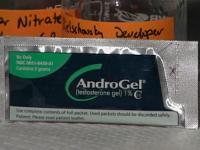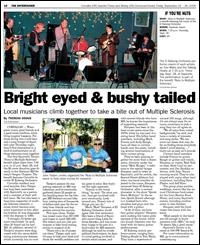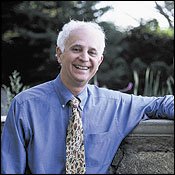 |
ARCHIVE # 4: 554 ARTICLES (NOV -SEPT 2006) |
|
|||||
| Visitors Since 03/2006 |
||||||||||||||||||||||||||||||||||||||||
| Click here to read messages from our MySpace Friends HERE'S A FEW OF OUR 1,404 MySpace FRIENDS |
||||||||||||||||||||||||||||||||||||||||
 |
||||||||||||||||||||||||||||||||||||||||

| ||||||||||||||||||||||||||||||||||||||||
| ||||||||||||||||||||||||||||||||||||||||
 Click to view 1280 MS Walk photos! | ||||||||||||||||||||||||||||||||||||||||
| "Join a trial at Barrow & receive all medication & study based procedures at no charge!" | ||||||||||||||||||||||||||||||||||||||||
| Stan Swartz, CEO, The MD Health Channel "WE PRODUCED THE FOLLOWING 9 VIDEOS FOR YOU!" Simply click the "video" buttons below: . |
||||||||||||||||||||||||||||||||||||||||
|
||||||||||||||||||||||||||||||||||||||||
|
||||||||||||||||||||||||||||||||||||||||
|
||||||||||||||||||||||||||||||||||||||||
|
||||||||||||||||||||||||||||||||||||||||
|
||||||||||||||||||||||||||||||||||||||||
|
||||||||||||||||||||||||||||||||||||||||
| Previious Posts | ||||||||||||||||||||||||||||||||||||||||
|
||||||||||||||||||||||||||||||||||||||||
| MS NEWS ARCHIVES: by week | ||||||||||||||||||||||||||||||||||||||||
| September 2006 | ||||||||||||||||||||||||||||||||||||||||
| October 2006 | ||||||||||||||||||||||||||||||||||||||||
| November 2006 | ||||||||||||||||||||||||||||||||||||||||
| July 2013 | ||||||||||||||||||||||||||||||||||||||||
| April 2014 | ||||||||||||||||||||||||||||||||||||||||
Saturday, September 30, 2006
PERSEVERANCE: MIA IS A Real Hero...plus she is one of our 880 MySpace Friends
"MS is a part of our lives but we dont have to let it be the only part" MIA
"CLICK HERE TO VISIT OUR NEW MySpace PAGE...BECOME A FRIEND...SHARE YOUR MS EXPERIENCES WITH MIA & 623 OTHER FRIENDS!"





"Dear Stan...
Thank you so much for MS NEWS CHANNEL...As a 26 year living with the dx of MS for 5 years..things like this really help.
Im a mother of 3 but they are of the fuzzy persuasion.
I work at GE as a Field Service Coordinator..Sounds fancy schmancy i know=) I like to think of myself as a fun outgoing girl who loves life
I recently had a severe exaserbation of Optic neuritis that also robbed me of my ability to walk without a cane. I rememeber telling my best friend..I have never felt so...disabled..It was one of the worst feelings in the world. If anyone needs to talk never hesitate to message me..I am always here....God Bless!!"
Have a MS story like Mia's to share with others? Simply go to our "MySpace Page" and write Stan a note!
TYSABRI - Presented at ECTRIMS
MADRID, SPAIN -- September 30, 2006 -- Natalizumab (Tysabri) significantly reduces brain atrophy compared with placebo treatment during the second year of treatment and significantly improves cognitive function in patients with multiple sclerosis (MS), researchers reported here at the 22nd Congress of the European Committee for Treatment and Research in Multiple Sclerosis (ECTRIM).
"We saw that natalizumab was, indeed, effective in reducing the rate of brain atrophy in the second year of treatment, and this is especially important because in the brain of an MS patient, brain atrophy correlates to reduced cognitive function," said presenting investigator Elizabeth Fisher, PhD, assistant professor, department of biomedical engineering, Cleveland Clinic, Cleveland, Ohio.....
The investigators also found that natalizumab treatment significantly reduced the proportion of patients with worsening in 3-second Paced Auditory Serial Addition Test score compared with placebo. They observed a positive correlation between change in BPF and time to sustained worsening of cognitive function over 2 years among placebo subjects. They saw no such correlation among natalizumab subjects.
In addition, the AFFIRM investigators also reported that there were 92% fewer gadolinium-enhancing lesions and 83% fewer new or enlarging T2-hyperintensities on magnetic resonance imaging in the natalizumab group compared with placebo.....
[Presentation title: The Effects of Natalizumab on Brain Atrophy and Cognitive Function: Results From the AFFIRM Study. Abstract P383]
Symadex...NEW DRUG ANNOUNCEMENT FROM ECTRIMS
[ECTRIMS] "Xanthus Pharmaceuticals Inc., a privately-held drug development company, today presented data that Symadex(TM) reverses the clinical and pathological signs of chronic disease in an animal model for multiple sclerosis (MS). The presentation was made by Stephen J. Karlik, PhD, Professor of Diagnostic Radiology at the University of Western Ontario, London, Ontario, together with researchers from Xanthus in aposter session at the 22nd Congress of the European Committee for Treatment and Research in Multiple Sclerosis (ECTRIMS) meeting in Madrid, Spain.
Dr. Karlik used a model of experimental allergic encephalomyelitis(EAE) for the study. This same model was used by Dr. Karlik and his colleagues for published studies with natalizumab and related molecules. The study demonstrated that Symadex can reverse the clinical and pathological signs of chronic disease and that it can permit nerve remyelination. In addition, longer dosing resulted in continued benefit and the pathological changes including inflammation and vascular abnormalities were reversed. Importantly, Symadex did not affect circulating immune cell numbers, suggesting that it is not a general immunosuppressive agent....MORE

PERSEVERANCE=A Real Hero: Billy Talent Drummer Aaron Solowoniuk: Living With MS [click to read more]...
Click here for Drummer Aaron Solowoniuk: BILLY TALENT'S MySpace page
Friday, September 29, 2006
TYSABRI BREAKING NEWS FROM ECTRIMS
Biogen Idec (NASDAQ: BIIB) and Elan Corporation, plc (NYSE: ELN) announced today that data from the Phase III AFFIRM monotherapy study demonstrated that treatment with TYSABRI(R) (natalizumab) significantly reduced the proportion of multiple sclerosis (MS) patients with worsening cognitive function as measured by the 3-second Paced Auditory Serial Addition Test (PASAT 3). These data, presented at the 22nd Congress of the European Committee for Treatment and Research in Multiple Sclerosis (ECTRIMS) in Madrid, Spain, contribute to existing data which demonstrate the overall therapeutic benefits of TYSABRI, including its significant impact on relapse reduction, disability progression and MRI measures. TYSABRI has demonstrated a 68% relative reduction in the annualized relapse rate compared to placebo and a 42% reduction in the relative risk of disability progression, as published in the New England Journal of Medicine.
Cognitive deficits are under-recognized and often misdiagnosed as depression, stress or other personality disorders. Studies have shown that approximately 43% to 65% of MS patients show measurable cognitive impairment in formal testing.(1) Cognitive dysfunction can occur early in MS and in patients with relatively mild physical disability. These deficits have a substantial effect on the daily functioning of patients. Areas impacted by cognitive dysfunction include memory, ability to process information and learning. (1),(2)
The AFFIRM study was a two-year, randomized, multi-center, placebo-controlled, double-blind study of 942 patients conducted in 99 sites worldwide, evaluating the effect of TYSABRI on the progression of disability and the rate of clinical relapses. Evaluating the effect of TYSABRI on cognitive function was a pre-specified endpoint of the AFFIRM study. Cognitive function was assessed using the 3-second Paced Auditory Serial Addition Test (PASAT 3), a test of auditory information processing. The study showed that treatment with TYSABRI reduced the risk of sustained cognitive worsening by 43% (p=0.013) when compared to placebo.
These cognitive function data complement the previously presented results of the AFFIRM study, which demonstrated a significant effect of TYSABRI on two-widely accepted health-related quality of life measures, the Short Form-36 Health Survey and the Visual Analogue Scale.
"Neuropsychological dysfunction significantly diminishes quality of life in many patients with multiple sclerosis, impacting everything from employment to social interaction. It is responsible for much hardship experienced by MS patients. The important positive effects of TYSABRI on cognitive functioning and quality of life add to the important benefits already reported on progression of disability and relapses. This provides strong evidence that observed neurologic benefits translate into important improvements as perceived by the patients," said Richard Rudick, MD, Director of the Mellen Center for Multiple Sclerosis Treatment and Research at the Cleveland Clinic....
COPAXONE BREAKING NEWS FROM ECTRIMS: PRESS RELEASE
Jerusalem, Israel, September 28, 2006 - New data presented today at the 22nd Congress of the European Committee for Treatment and Research in Multiple Sclerosis (ECTRIMS) in Madrid, Spain, showed that antibodies to COPAXONE® (glatiramer acetate injection) developed in all patients with multiple sclerosis (MS) treated with COPAXONE®, but did not interfere with the efficacy of the drug. Over a mean treatment period of more than six years, patients in this cross-sectional study who were continuously treated with COPAXONE® experienced only a minimal increase in their EDSS score, indicating that the long-term efficacy of the drug was not compromised by treatment-related antibodies.
Studies have shown that neutralizing antibodies (Nabs) develop in 5 percent to 45 percent of all MS patients treated with interferon beta (IFN-β). The presence of Nabs to IFN-β may negatively alter the therapeutic effectiveness of this class of disease modifying drugs which includes IFN-β-1a SC (Rebif®), IFN-β-1b SC (Betaseron®), and IFN-β-1a IM (Avonex®). Patients who test positive for NAbs are more likely to have reduced therapeutic benefits from their interferon beta treatment (measured by the reduction in relapse rate, the reduction in disability progression and the disease activity as evidenced by brain magnetic resonance
"Neutralizing antibodies against IFNs are therefore an important issue for MS management, as their development appear to diminish their clinical efficacy," said Professor Dimitrios Karussis, Department of Neurology, Hadassah University Hospital, Ein-Karem, Jerusalem. "Our data confirms that antibodies to COPAXONE® which develop in all patients do not neutralize the drug's biological activity and do not compromise its established sustained long term effectiveness." he added.
Recent guidelines on Nabs to beta interferons, produced by the European Federation of Neurological Societies (EFNS), recommend that all people with MS being treated with IFN-β be screened after 12 and 24 months of treatment to determine the existence of anti-IFN-β Abs, and that those who have persistently high levels of NAbs after re-testing 3-6 months after the first results, should have their interferon beta treatment discontinued. Furthermore, it is recommended that since NABs are cross-reactive, switch from one IFN preparation to another is of no clinical benefit.
About the Study
Patients in this study (n=126) who had received COPAXONE® (glatiramer acetate injection) from 2 years to 15 years were surveyed to determine levels and types of antibodies to COPAXONE® and to correlate these parameters with treatment outcomes. Serum samples were collected from study participants, and were analyzed for the presence of antibodies to COPAXONE® using ELISA E (enzyme-linked immunosorbent assay) methodology. Clinical data, including the current and previous Expanded Disability Status Scale (EDSS) scores, and the relapse rates, were also collected at the time the serum samples were taken.
Over the mean COPAXONE® treatment period of 6.65 years, sera from only six patients demonstrated minimal in vitro neutralizing activity. In addition, patients were clinically stable for the whole COPAXONE® treatment period, showing a minimal mean increase in EDSS score of 0.65 (mean annual increase = 0.10 per patient). Despite mean disease duration of 10.75 years, the majority of patients (77 percent) surveyed had an EDSS score of less than 4.0, a stage at which they were still fully ambulatory.
In order to further study the subject of NABs to IFNs, Teva Neuroscience, Inc., recently initiated the first-ever study designed to....MORE
REBIF BREAKING NEWS: "Data Presented at 22nd ECTRIMS Congress in Madrid"....Serono - Latest Press Release
Madrid, Spain, September 28, 2006 - Serono (virt-x: SEO and NYSE: SRA) announced today data from an ongoing two-year (96 weeks) Phase IIIb trial show that the new formulation of Rebif® (interferon beta-1a) 44 mcg subcutaneously (sc) three times weekly (tiw) for the treatment of relapsing forms of multiple sclerosis (MS) offers substantial improvement in tolerability and reduction in antibody formation observed at one year (48 weeks), compared with historical data from patients. Historical data for the currently available formulation of Rebif® is the EVIDENCE study. These data are presented today at a satellite symposium at the 22nd Congress of the European Committee for Treatment and Research in Multiple Sclerosis (ECTRIMS) in Madrid, Spain.
“These results are promising news for patients with multiple sclerosis," said Prof Per Soelberg Sørensen, from the Danish MS Research Center, Copenhagen University Hospital, Rigshospitalet and an investigator of the trial.
“If approved the new formulation of Rebif® potentially represents an improvement in the treatment of patients with multiple sclerosis.”
The incidence of injection site reactions with the new formulation of Rebif® at 48 weeks was nearly three-fold less than in the EVIDENCE study (29.6% versus 83.8%). Injection site reactions are one of the reasons why some patients discontinue MS treatment. Treatment enhancements resulting in a decrease of injection site reactions are usually associated with improved compliance and adherence to treatment......
“The new formulation of Rebif® has been developed by an innovative approach, using state-of-the-art technologies, with a major focus on the molecule’s structural and functional integrity”, said Franck Latrille, Senior Executive Vice President Global Product Development at Serono. “Based on the improvements in tolerability and immunogenicity, the new formulation of Rebif® could lead to an improved benefit-to-risk profile”.
......MORE
Men with multiple sclerosis seem to be more than twice as likely to transmit the disease to their children as women with this disease, say researchers from the Mayo Clinic.
This finding may come as a surprise to some because multiple sclerosis is more than twice as common in women as in men. But researchers say this difference in prevalence may have something to do with a father's higher chance of passing genetic risk factors for the disease to his offspring.
Multiple sclerosis is a degenerative nerve disorder that affects the brain and spinal cord. It is estimated that nearly 1 in 1,000 people will develop this disease that slowly attacks the nervous system and causes difficulty walking, pain, fatigue and depression among other symptoms. It is believed that both genetics and the environment play a part in its development; about 15 percent of patients with multiple sclerosis have at least one family member with the disease.
"A combination of genes and unknown environmental factors work together to cause multiple sclerosis," said lead study author, Dr. Orhun Kantarci, neurologist at the Mayo Clinic.....
TYSABRI BREAKING NEWS FROM ECTRIMS
Source: Biogen Idec and Elan Corporation,
ZUG, Switzerland and DUBLIN, Ireland--(BUSINESS WIRE)--Biogen Idec (NASDAQ: BIIB - News) and Elan Corporation, plc (NYSE: ELN - News) announced today new data that show TYSABRI® (natalizumab) has a sustained effect on relapse rate in multiple sclerosis (MS) patients treated for up to three years. These data, presented at the 22nd Congress of the European Committee for Treatment and Research in Multiple Sclerosis (ECTRIMS) in Madrid, Spain, were part of long-term follow-up of TYSABRI clinical trial patients.
Approximately 250 of these patients remained on TYSABRI monotherapy for nearly three years. The annualized relapse rate for these patients over the three-year period was 0.23, translating into an average of one relapse every 4.3 years. This was consistent with the 0.23 annualized relapse rate seen in the two-year AFFIRM study, which represented a 68% relative reduction when compared to the two-year placebo annualized relapse rate of 0.73, as published in the New England Journal of Medicine.
"Data from this long-term follow-up study show that TYSABRI has a sustained and compelling effect on relapse rates beyond two years of treatment. The efficacy benefit of TYSABRI when considered with the management of its known risks, offers an important therapeutic option for many patients living with the debilitating effects of MS," said Paul O'Connor, MD, St. Michael's Hospital, Toronto, Ontario, Canada, lead investigator of the extension study.
COPAXONE PRESS RELEASE: Very Active Multiple Sclerosis Patients Benefited From COPAXONE(R) Treatment Following Short-Term Induction With Mitoxantrone
A new study showed that very active patients who received COPAXONE® (glatiramer acetate injection) therapy alone following short-term induction treatment with mitoxantrone experienced an 89 percent greater reduction (P<0.0001)>
These data were presented today at the 22nd Congress of the European Committee for Treatment and Research in Multiple Sclerosis (ECTRIMS) in Madrid, Spain.
"These new data represent a promising development in the scientific community's effort to identify additional effective treatment strategies for those patients who have particularly aggressive forms of RRMS, many of whom do not respond optimally to traditional disease modifying therapies," said Tim Vollmer, M.D., chairman, Division of Neurology, Barrow Neurological Institute at St. Joseph's Hospital and Medical Center and the primary investigator in this study. "By putting patients on COPAXONE® after a brief induction period with mitoxantrone, we were able to significantly reduce MRI-disease activity in the brain of active RRMS patients and to sustain this benefit throughout the study."
About the Study
This randomized, double-blind study looked at the safety, tolerability and efficacy of COPAXONE® (glatiramer acetate injection) used after short-term induction therapy with mitoxantrone versus COPAXONE® alone. Relapsing-remitting multiple sclerosis (RRMS) patients in this study (n=40) were randomized to receive either COPAXONE® for one year following three months of mitoxantrone (M-GA; n=21), or COPAXONE® alone for 15 months (GA; n=19). The study included patients aged 18-55, who had a Gd-enhancing lesion at the time of an initial screening MRI scan and an EDSS score of ≤6.5. Patients entering the study were considered very active with a mean number of Gd-enhancing lesions of 3.75. Subsequent brain MRIs were performed at screening and months six, nine, 12 and 15.
Results showing a reduction of Gd-enhancing lesions in the M-GA patient cohort compared with the GA cohort were observed as early as six months into the trial (p< p =" 0.0147).">
A relapse was experienced on average eight months prior to baseline in all study participants; after 15 months, the majority of these patients had not experienced a relapse. Patients who received COPAXONE® after mitoxantrone showed a trend in experiencing fewer relapses over the study period. Mean relapse rate during the study period was 0.16 in the M-GA group and 0.32 in the GA group, reflecting a 46 percent greater reduction in relapses in M-GA patients than of those that did not receive mitoxantrone (p=0.31). There was no difference in time to first relapse between the patient cohorts.
Within study participants, the most frequent adverse events (AEs) associated with the M-GA group were infection, nausea and vomiting, menstruation irregularities and alopecia, and were consistent with known effects of mitoxantrone therapy. Injection site erythema was the most common AE in the GA group.
"Mitoxantrone carries certain risks which limit its use to a maximum recommended lifetime dose. These difficulties make mitoxantrone an option that is generally reserved for only a small group of patients who have a poor disease prognosis or whose disease does not respond to first-line treatment," said Tim Vollmer, M.D., chairman, Division of Neurology, Barrow Neurological Institute at St. Joseph's Hospital and Medical Center and the primary investigator in this study. "When used after short-term induction with mitoxantrone, COPAXONE® minimized exposure to mitoxantrone while maintaining treatment effects ongoing, making it a viable treatment option for a broader proportion of the MS population."
Teva has also issued today a press release regarding additional data presented at ECTRIMS on the efficacy and safety of COPAXONE® treatment after short-term combination of COPAXONE® and intravenous steroids, which will be posted at www.tevapharm.com.
AVONEX PRESS RELEASE FROM ECTRIMS
....treatment with AVONEX (Interferon beta-1a) promoted a statistically significant recovery of T1-black hole lesion volume by almost 24%....
Initial findings presented today at the 22nd Congress of the European Committee for Treatment and Research in Multiple Sclerosis (ECTRIMS) in Madrid, Spain showed that treatment with AVONEX (Interferon beta-1a) promoted a statistically significant recovery of T1-black hole lesion volume by almost 24% (p<0.05)>
The objective of this study was to evaluate the effect of AVONEX on global and focal disease as measured by multiple non-conventional and conventional MRI indices in a large sample of MS patients with either relapsing-remitting (RR) or secondary-progressive MS over 1 year. This study was an open label, single-blind, post-marketing, MRI observational study. 147 patients (131 with RRMS) were included with a mean pre-study disease duration of 11.1 years and followed for an average of 13.7 months. Patients received clinical and MRI examination at baseline and at the end of follow-up.
"This study represents one of the largest non-conventional MRI studies ever performed in patients with MS," said Dr. Robert Zivadinov, Associate Professor of Neurology and Director of the Buffalo Neuroimaging and Analysis Center, part of the Jacobs Neurological Institute, SUNY Buffalo, NY. He emphasized, "that the positive effect of AVONEX was particularly evident in patients with RRMS." This cohort represents a well-defined group of patients being on AVONEX monotherapy for a mean of 4.0 years before study entry. This study was funded by a grant from Biogen Idec.....
EMILY....VISITOR #10,001 TO THE MS NEWS CHANNEL
Emily is one of our 870 "MySpace Friends"



Emily and her "Kiddies"
"CLICK HERE TO VISIT OUR NEW MySpace PAGE...BECOME A FRIEND...SHARE YOUR MS EXPERIENCES WITH 870 FRIENDS!!!
ABOUT ECTRIMS:
September 27–30, 2006 / Madrid, Spain
CLICK HERE TO GO TO ECTRIMS HOME PAGE
(This international meeting fosters collaboration and cross-pollination between basic and clinical MS researchers to propel the search for better therapies and a cure)
ECTRIMS WELCOME LETTER TO ALL DOCTORS:
"Dear colleagues and friends,
We warmly welcome you in Madrid for the 22nd meeting of the European Committee for Treatment and Research in Multiple Sclerosis. Over the last years, MS therapy has become increasingly complex. New medications are in various stages of development and the need for assessing their efficacy is bigger than ever.
However, the availability of approved drugs has created significant obstacles to the conduct of classical placebo-controlled clinical trials. Furthermore, the partial efficacy of the licensed medications poses the need for combining existing and new drugs. These matters will be reviewed in two of the main topics.
Separate sessions will be devoted to a selection of important topics such as paediatric MS, advances in immunology, recent insights into basic mechanisms of CNS damage, the complex role of the cannabinoid system in immuneregulation and tissue protection, the usefulness of CSF analysis in the era of the new diagnostic criteria and new aspects of the natural history of MS.
Whether or not the incidence of MS is increasing, the role of conventional MRI as a means to assess the patient’s evolution, advances in functional MRI and the concept and therapeutic approach to breakthrough MS will be discussed under the heading of “practical issues in MS”.
Madrid is a vital and exciting city that can certainly make your stay very pleasant. Please spare some of your time to enjoy the many resources that this city offers to the visitor.
Welcome to ECTRIMS 2007 – Welcome to Madrid!
A. Garcia-Merino L. Kappos H.-P. Hartung
Wednesday, September 27, 2006
"A retrospective analysis of multiple sclerosis (MS) patients comparing patients treated with immunomodulatory agents with untreated patients revealed that only treatment with COPAXONE(R) (glatiramer acetate injection) was associated with significantly fewer days missed from work compared to untreated patients. Neither treatment with Avonex(R) (Interferon beta-1a IM) nor Betaseron(R) (Interferon beta-1b) was associated with significantly fewer days missed from work in comparison to untreated patients. The findings of this study, "Effect of immunomodulatory therapy and other factors on employment loss time in multiple sclerosis," were published in the September issue of the journal WORK.
"Being able to pursue a satisfying work life is an important part of life for most people, yet the symptoms of relapsing-remitting multiple sclerosis (RRMS) and the up and down nature of the disease can make this a challenge for many patients," said MerriKay Oleen-Burkey, PhD, director of Outcomes Research at Teva Neuroscience and a study investigator. "After diagnosis, an estimated 70 to 80 percent of MS patients in the United States leave the workforce. A major goal in the treatment of RRMS is to reduce disease relapses and to provide patients the ability to go on with their lives despite the disease."
Disease relapses in MS can be associated with hospitalization, interference with employment and accumulated disability, leading researchers to suggest that reducing relapse rates may be associated with a reduction in lost work time.
"The results of this study suggest that COPAXONE(R) might be a contributor in helping to keep MS patients participating in the workplace for as long as possible," said Oleen-Burkey. "It is important to consider the results of this study in context given various study limitations, including the retrospective design and a relatively small sample size. It is also important to continue searching for the optimal combination of factors for preserving the working life of MS patients....":

"Testosterone gel proven to slow symptoms of MS...in small study"....]CLICK TO READ MORE:
"In a small study, 10 men with multiple sclerosis applied this testosterone gel to their shoulders once a day for a year; the study found the gel improved their immune systems and all the patients performed better on memory tests....
Rhonda Voskuhl, M.D., of the UCLA School of Medicine, says, "What they reported is that they felt better, that they had more energy and less fatigue."
The gel improved their immune systems and all the patients performed better on memory tests.
MRI scans also showed parts of the brain, which normally decline when affected by multiple sclerosis, actually slowed."...
"MBP8298 shown to safely delay disease progression for five years in progressive MS patients with HLA-DR2 or HLA-DR4 immune response genes. Phase II and long-term follow-up treatment data to be presented at ECTRIMS - MBP8298 shown to safely delay disease progression for five years in progressive MS patients with HLA-DR2 or HLA-DR4 immune response genes. - Pivotal Phase II/III clinical trial underway in Europe and Canada - .....MORE"

FDA fast-tracks Serono's oral MS drug - "The Serono Biotech Center is seen in Corsier-sur-Vevey, Switzerland - FULL ARTICLE:
"...Fast-track programs are designed to facilitate the development and expedite the review of new drugs that could treat serious or life-threatening conditions, and that demonstrate the potential to address unmet medical needs. Oral cladribine is now eligible for priority review, and the FDA can review data as it is received, instead of waiting until Serono's new drug application is completed...."
"This is a great drug and a great story," said Dr. Lauren Krupp, director of the pediatric MS center at Stony Brook University Hospital and co-director of the adult center. She treated 16 of her patients with Acorda's experimental drug. "We had great results," she said. "Our goal is to keep patients out of a wheelchair." Multiple sclerosis is an autoimmune disease that affects the central nervous system.
Krupp said she first heard about the substance, now called Fampridine-SR, more than 20 years ago. The chemical was synthesized from coal tar in the 1890s. It took almost 100 years for scientists to discover its biological properties. It improves impulse conduction along nerve fibers....
"Laquinimod Phase IIb Trial confirms efficacy and favorable safety profile and shows significant reduction in the rate of inflammatory disease activity
The once-daily novel oral agent for relapsing remitting multiple sclerosis (MS) patients met its primary end-point."
"Jerusalem, Israel and Lund, Sweden, September 5, 2006 - Teva Pharmaceutical Industries Ltd (Nasdaq: TEVA) and Active Biotech AB (ACTI.ST) today announced that a Phase IIb study designed to evaluate the safety and efficacy of laquinimod, a once-daily novel oral agent, in relapsing remitting multiple sclerosis (MS) patients, met its primary end-point.
Laquinimod treatment significantly reduced the rate of inflammatory disease activity, as measured by the cumulative number of Gadolinium enhancing lesions on brain MRI scans after 36 weeks of treatment. Laquinimod treatment also demonstrated a considerable reduction in the number of clinical relapses compared to placebo. This Phase IIb multi-center, randomized, double-blind, placebo-controlled study enrolled approximately 300 patients in 8 European countries and in Israel.
The evaluation of the safety and side-effect data confirmed the favourable safety profile that was seen in earlier phase II clinical trials. The majority of the patients who participated in the study are currently continuing treatment with laquinimod in an ongoing, blinded extension study.
"The study results with once daily oral laquinimod are very encouraging and further demonstrate our ongoing commitment to developing new classes of therapies for MS, including oral therapies, to treat the disease, as well as to improve the patients' quality of life," said Israel Makov, President and CEO of Teva Pharmaceutical Industries Ltd.
"As of today, nearly 400 patients have received laquinimod in various clinical trials over the last years. The data from the completed studies together with preclinical documentation, confirm laquinimod's efficacy and favorable safety profile in MS patients," said Sven Andr'asson, President and CEO of Active Biotech AB.
The positive result of the clinical trial triggers a milestone payment to Active Biotech.
Further details about the study will be given at Teva's Innovative R&D Day in New York City on September 26th, 2006. A complete presentation of the Phase IIb data will be given at upcoming relevant scientific meetings.
Teva is discussing laquinimod's development plan with regulatory authorities in order to accelerate the clinical program into Phase III.
About Laquinimod:
Laquinimod is a novel once-daily, orally administered immunomodulatory compound developed as a disease modifying treatment for multiple sclerosis (MS). Active Biotech developed laquinimod and licensed it to Teva Pharmaceutical Industries Ltd. in June 2004 ....[MORE]"
"Acorda Drug Helps MS Patients in Walking; Shares Soar..CLICK FOR MORE
Sept. 25 (Bloomberg) -- Shares of Acorda Therapeutics Inc. more than tripled after the company said its experimental Fampridine drug helped people with multiple sclerosis walk faster.
Patients who took Fampridine-SR moved 25 percent faster on average during a timed 25-foot walk, while patients getting a placebo improved 4.7 percent, Hawthorne, New York-based Acorda said today. Patients on the drug also had increased leg strength, even those who didn't show improvement in walking.
Chief Executive Officer Ron Cohen said the company believes it met all three criteria the U.S. Food and Drug Administration set to establish that the drug works and plans to meet with the agency as soon as possible. About 80 percent of the 400,000 Americans with multiple sclerosis have some trouble walking, according to the company.
``It's a drug to help improve the symptoms of MS, and there's not any other product labeled to help with walking disability,'' said Philip Nadeau, an analyst with Cowen & Co. in New York, in a telephone interview. ``It will be complementary to everything that's out there right now.....
¶Research in mice suggests that a commonly used vitamin called nicotinamide can alleviate the symptoms of the most severe form of multiple sclerosis by protecting nerve fibers from damage. Currently, there is no effective treatment for this phase of the disease, called chronic progressive MS....
"Giving multiple sclerosis (MS) patients a daily shot of nicotinamide may protect them from the risk of nerve degeneration and long-term severe disability, say researchers from the Children's Hospital, Boston, USA, who managed to do this with mice with Experimental Autoimmune Encephalitis (symptoms are similar to MS). Nicotinamide is a form of vitamin B3.....
Lyrica's neuropathic pain indication broadened to include central nerve pain; Central nerve pain is associated with conditions such as spinal cord injury, stroke, and multiple sclerosis
A robust and unprecedented clinical program involving more than 10,000 patients supports Lyrica's efficacy and safety in treating a broad range of neurological disorders
Medical Expert: 'Physicians will be in a better position to manage a whole host of difficult-to-treat nerve pains for many of their patients.'
NEW YORK, NY -- September 19, 2006 -- Pfizer Inc said today that the European Commission approved Lyrica(R) (pregabalin capsules) to treat central neuropathic (nerve) pain.
This new approval broadens the current range of neuropathic pain that Lyrica is approved to treat in Europe to include nerve pain associated with conditions such as spinal cord injury, stroke, and multiple sclerosis.
Central neuropathic pain can be an especially difficult-to-treat condition, often requiring the use of strong narcotics. Lyrica's approval in central neuropathic pain provides further evidence of its robust efficacy in even the most hard to treat neuropathic pain conditions. Now, Lyrica is the only medication approved in the EU to treat both peripheral and central neuropathic pain, which affects up to 7.7 million people in Europe.
Developed by Pfizer, Lyrica is believed to work by calming hyper-excited neurons which may be an underlying cause for various types of nerve pain......more
"Opexa Therapeutics, Inc. (OPXA) announced a number of positive steps in the Company's development including: -- Its Phase IIb study with Tovaxin(TM) for the treatment of multiple sclerosis has begun. -- Positive data from the Phase I/II trial with Tovaxin in multiple sclerosis indicate that after 12 months, patients exhibited a relapse rate reduction of more than 90%.
Initiation of animal studies at the University of Texas Medical Branch at Galveston utilizing the Company's autologous adult human stem cell regenerative medicine platform technology."
Genzyme Corp. said its Campath drug was more effective in treating multiple sclerosis than Serono SA's Rebif, the second-best selling MS treatment worldwide.
MS patients had 75 percent fewer symptom relapses after two years of treatment with Campath than with Rebif, Cambridge, Massachusetts-based Genzyme said today in releasing interim results of a 334-patient study. The Genzyme-sponsored trial was suspended a year ago after a patient died from abnormal bleeding.
The results suggest that Campath may be an effective option for treating MS, a debilitating neurological disorder that affects more than 2.5 million people worldwide, analysts said. A plan by Genzyme to reduce the bleeding risk may help persuade regulators to allow a larger patient study needed to win U.S. regulatory approval, the company said
``Patients and physicians are willing to take on a certain amount of risk when you have new opportunities to combat this debilitating disease,'' Aaron Reames, an analyst with A.G. Edwards in Boston said today in an interview. ``This is definitely positive data.''
The U.S. Food and Drug Administration in June approved Biogen Idec Inc.' Tysabri MS drug, which had been withdrawn more than a year ago because of a fatal side effect. The FDA allowed Tysabri back on the market after the company set up procedures designed to have doctors closely monitor patients. Biogen's Avonex is the world's top-selling MS medicine.
Safety Data
Shares of Genzyme, based in Cambridge, Massachusetts, gained $1.80, or 2.7 percent, to $68.35 in Nasdaq Stock Market composite trading. They had fallen 6 percent this year before today. Serono fell 8 Swiss francs to 871.5 francs in Zurich.
Safety data from the trial will be presented later this month at the meeting of the European Committee for Treatment and Research in MS in Madrid. Final results from the three-year trial are due in a year from now.
MS robs people of muscle coordination and balance, and can lead to damaged vision and paralysis. The disease is caused when the body's immune system attacks myelin, the coating on nerve fibers. In severe MS, people have permanent symptoms, including partial or complete paralysis.
The Campath study compared the drug to Rebif in patients with a form of the disease, called relapsing/remitting MS, in which a flare-up of symptoms is followed by remission.
Genzyme said today it requested a meeting with the FDA to present the data and to address the next steps in the drug's development. The company has already received scientific advice from the European Medicines Agency for moving forward into the last of three stages of human tests needed for regulatory approval.....MORE

ORAL FINGOLIMOD MAY REDUCE DISEASE ACTIVITY IN RELAPSING MS
[The New England Journal of Medicine 2006;1124-1140, 1088-1091]
"Results of a proof-of-concept randomized trial of fingolimod, an oral immune-modulating drug, show that treatment reduced the number of gadolinium-enhancing lesions on MRI as well as relapse-related clinical end points in patients with relapsing multiple sclerosis (MS).
'Our results show that oral fingolimod may be a treatment option for relapsing multiple sclerosis,' the researchers, with first author Ludwig Kappos, MD, from the University Hospital, Basel, Switzerland, conclude in their report. 'Before these findings can be considered clinically directive, the benefits and risks of fingolimod need to be further evaluated in larger-scale, longer-term clinical studies."
Tuesday, September 26, 2006
...Fampridine has been shown to improve communication between damaged nerves. Existing MS drugs either relieve symptoms such as pain or slow the disease's progression.....
Acorda hasn't decided what the drug would cost. The company wants to position Fampridine-SR in the market between symptom- relief therapies, which cost patients as much as $4,500 a year, and treatments that slow progression at a cost of $10,000 to $20,000 annually, Chief Operating Officer Mary Fisher said during the conference call.
Acorda, established in 1995, has one product on the market, the Zanaflex drug to help manage stiffness and muscle spasms in patients with multiple sclerosis or spinal-cord injuries, according to the company's Web site.
"........34.8 percent of people taking Fampridine-SR had improved walking speed, compared to 8.3 percent for those on placebo as measured by the Timed 25-Foot Walk, the study's primary outcome (p<0.001).>
'If you are a timed-walk responder,' Cohen explained, 'you also are statistically likely to say, blindly, that your walking is better at home. Your activities of daily life are better, and you've improved, clinically.'
The average increase in walking speed over the treatment period compared to baseline was 25.2 percent among Fampridine-SR vs. 4.7 percent for the placebo group. Increased response rate on the Timed 25-Foot Walk was seen across all four major types of MS: primary-progressive, secondary-progressive, relapsing-remitting and progressive-relapsing. In addition, statistically significant increases in leg strength were seen in both the Fampridine-SR timed-walk responders (p<0.001) p="0.046)">
'It is possible to get discreet improvements,' Cohen said, 'depending on where your lesions are, as an individual, and what the drug is able to restore...."
......Acorda had negotiated a Special Protocol Assessment (SPA) with the FDA and announced that the Fampridine trial met all endpoints of the SPA.
Companies negotiate SPAs with the FDA to clearly define what endpoints in a clinical trial will have to be achieved in order to for the trial to be deemed a success. When a trial meets the criteria set forth in an SPA, the chances of the drug being approved by the FDA are greatly increased.
Successfully meeting the criteria of an SPA does not guarantee drug approval in and of itself. The FDA has to also be assured that the drug doesn't have any special safety issues. This is the area where Acorda might run into problems, since the Fampridine phase III trial consisted of only 301 patients taking the drug or a placebo over a fourteen-week period.
The only major adverse events associated with Fampridine were one case of sepsis and another possible death. Investors following Acorda would be smart to get more information about both of these cases when the company releases full results from the trial at a future medical conference.
I'm not entirely convinced that one short clinical trial will provide enough evidence to the FDA to approve Fampridine. Multiple sclerosis is a chronic condition and patients take drugs to treat it for years. Historically, the FDA has required at least a two-year trial for any company hoping for drug approval in this indication......
At a meeting for analysts and investors in New York, the Israel-based company touted its stable of experimental medicines that include potential therapies for MS,....
Monday, September 25, 2006
...For Eorio, the award was an important milestone in her efforts to show how people with MS need to be engaged in physical activity.
“I was really honored by this,” she said. “Because of how important I think that fitness and exercise is for people with MS. And it’s really nice to have gotten the word out there.”
Eorio, who was diagnosed with MS in 1971, began to develop her own fitness routine in 1991. After being granted a Betaseron Champions of Courage grant in 2000, Eorio was able to start a fitness program. The program was a 12-session, six-week program that was free to anyone with MS. Currently, Eorio has a yoga class, an aquatics class, and is starting a Pilates class.
“That’s the one we’ve been trying to get going for over a year,” said Eorio of the Pilates class. “It’s finally happening, so it’s huge.”
Eorio’s Pilates class, called “Seated Pilates for MS”, met for the first time on Tuesday at ACAC. Eorio feels that Pilates is a program that focuses on the muscle group important for people with MS.
“I’ve been really pushing for that one because I’ve been having some weakness in my abdominal [muscles] that was maybe adding some curvature to my spine,” Eorio said. “It was clear that I needed more abdominal and core strength and that’s what Pilates stress directly.”
Eorio also wants to stress that the classes help with the day-to-day lives of people with MS; that working the muscles in class helps in every aspect of life.
“It’s helping you walk, it’s helping you sit,” she said. “In order to walk you need have good balance, even in order to sit up straight. And if you don’t sit up straight, your body is going to adjust and there’s going to be a curve in your spine. It’s helping you to remain healthy and functional.”
Eorio is continuing to work to help people with MS through her classes and by starting work on a book about the benefits of fitness for people with MS....
Biogen Idec Plots its Positioning of Avonex and Tysabri to Maximize Revenues and Capture Patient Share from Competitors:
Decision Resources and Millennium Research Group find that Biogen Idec must carefully position its two multiple sclerosis drugs, Avonex and Tysabri, to maximize the patient share of both drugs. According to the new report entitled Brands & Strategies: Multiple Sclerosis, Tysabri is expected to be used almost exclusively as a second-line or later treatment option due to its new labeling, which recommends the drug only for patients who have failed to respond to at least one other multiple sclerosis therapy. In order to maximize the sales potential of Tysabri, it will be important for Biogen Idec to position the drug as the first alternative should a patient fail to respond to their initial multiple sclerosis treatment. This would allow Biogen Idec to start patients on Tysabri much sooner than if those patients were to first try switching between various interferon-beta brands and Teva Pharmaceuticals' Copaxone before considering Tysabri.
"Biogen Idec will continue positioning Avonex as the first choice for multiple sclerosis therapy and make Tysabri the first alternative, rather than a high-dose interferon or Teva's Copaxone, should patients fail while taking Avonex," said Craig Speziali, analyst at Millennium Research Group. "This strategy should be effective in maximizing revenues from Biogen Idec's entire multiple sclerosis franchise while potentially capturing patient share away from competitors......
Shares of Acorda Therapeutics Inc. more than tripled Monday, hitting a new 52-week high, after the biotech drug developer announced the success of a late-stage clinical trial to test its treatment to improve the walking ability of multiple sclerosis patients. Acorda shares rose $5.25 to $7.47 in midday trading on the Nasdaq..........
Saturday, September 23, 2006
Current therapies for MS mainly address the relapsing-remitting phase of the disease, but some of these have severe side effects, and most patients eventually enter a chronic progressive phase for which there is no good treatment.
Using a mouse model of MS, researchers in the Neurobiology Program at Children's Hospital Boston found strong evidence that an inexpensive, readily available compound may protect against nerve damage in the chronic progressive phase, when the most serious disabilities occur. Their findings appear in a cover article in the September 20 Journal of Neuroscience......."
"BioMS Medical Expands Pivotal Multiple Sclerosis Trial into Spain and Germany
Edmonton, Alberta - BioMS Medical Corp (TSX: MS), a leading developer in the treatment of multiple sclerosis (MS), today announced it has received approval from the Spanish Agency for Medicines and Healthcare Products (SAMHP) in Spain and from the Federal Institute for Medicines and Medical Products in Germany to start patient enrolment for its pivotal phase II/III clinical trial of MBP8298, a proprietary synthetic peptide for the treatment of secondary progressive multiple sclerosis (SPMS).
Pivotal Phase II/III Multiple Sclerosis Trial....
BioMS Medical is currently enrolling patients across Canada , the U.K. , Sweden , Denmark and The Netherlands in its pivotal phase II/III clinical trial evaluating MBP8298 for the treatment of secondary progressive multiple sclerosis (SPMS). The trial is a randomized, double-blind study enrolling approximately 553 patients who will be administered either MBP8298 or placebo intravenously every six months for a period of two years. The primary clinical endpoint for the trial is defined as a statistically and clinically significant increase in the time to progression of the disease as measured by the Expanded Disability Status Scale (EDSS), in patients with HLA-DR2 and/or HLA-DR4 immune response genes. Time to disease progression in patients with other HLA-DR types will be assessed separately as an exploratory arm of the same study. To date the trial has successfully passed five safety reviews by its independent Data Safety Monitoring Board."
Click the link in the headline to read more about BioMS Medical Corp.
The findings were presented here on September 5th at the 10th Congress of the European Federation of Neurological Societies (EFNS) by Michael Hutchinson, MD, professor of neurology, department of neurology, St. Vincent's University Hospital, Dublin, Ireland, on behalf of the AFFIRM study investigators....."
Sativex is already approved in Canada to treat MS neuropathic pain and the company recently started a further phase III study in this indication. UK regulator, the MHRA, rejected the drug in December 2004, calling for a second clinical trial to prove its efficacy, which the company has now conducted, and which, it believes, proves that Sativex works. Dr Stephen Wright, GW's R&D Director said: "We now have a sizeable body of positive clinical data to support the efficacy and safety of Sativex in MS spasticity. This is a complex data package and we have therefore reviewed the complete dossier with our marketing partners and discussed it in detail with a number of European regulators.
The company is seeking to treat multiple sclerosis spasticity, but hopes to eventually gain licences to treat peripheral neuropathic pain, MS neuropathic pain and cancer pain as well. GW Pharmaceuticals has filed Sativex for approval through the decentralised procedure for licences in just four European countries, the UK, Denmark, Spain and the Netherlands......"
¶WASHINGTON, Sept. 22 — The nation’s system for ensuring the safety of medicines needs major changes, advertising of new drugs should be restricted, and consumers should be wary of drugs that have only recently been approved, according to a long-anticipated study of drug safety.
The report by the Institute of Medicine, part of the National Academy of Sciences, is likely to intensify a debate about the safety of the nation’s drug supply and the adequacy of the government’s oversight. The debate heated up in September 2004 when Merck withdrew its popular arthritis drug Vioxx after studies showed that it doubled the risks of heart attacks....
Dr. Claudia F. Lucchinetti,
Neurology, Mayo Clinic,
Rochester, Minn.
"The Food and Drug Administration recently reapproved Tysabri, a drug that earlier was said to be a big advance in the treatment of multiple sclerosis but caused a few instances of deadly side effects. Now that this medication is back on the market, what difference will it make in how MS patients are treated? And is it really safe?
Tysabri (brand name for natalizumab) will not make a big difference for most MS patients - at least, not right away - because the FDA reapproval carries a variety of restrictions. And the drug's link to that deadly side effect, a rare brain infection called progressive multifocal leukoencephalopathy, means that physicians will likely consider Tysabri mainly for aggressive or unresponsive cases.
In MS patients with frequent and severe flare-ups whose condition is rapidly deteriorating or for those who cannot tolerate or are not helped by other available drugs, Tysabri's benefits may well offset its one-in-a-thousand risk (based on present data) of PML.
The good news is that the FDA's TOUCH Prescribing Program - which specifies limited access to Tysabri and frequent follow-up - is essentially a long-term clinical trial that could have a big impact on the overall understanding of MS and its future treatment.
MS is a chronic disease that affects the central nervous system. In patients with MS, the body incorrectly directs immune cells against the myelin sheath that surrounds the nerves. These attacks cause inflammation and injury to the sheath and eventually to the nerves, resulting in multiple areas of scarring (sclerosis). Such damage can slow or block nerve signals that control muscle coordination, strength, sensation and vision.
Typically, MS advances in two steps: 1) initial episodes of inflammatory demyelination associated with neurologic dysfunction, which are sometimes debilitating but usually soon subside, and 2) a subsequent slow and irreversible progression of the disease.
Scientists are still unsure whether the frequency and severity of flare-ups affect the MS patient's subsequent rate of decline. They may be unrelated; or it's possible that they are related but that available drugs have been unable to reduce inflammation enough to show benefit.
With Tysabri, the research community finally has an opportunity to determine whether limiting inflammation early will slow the disease's progression. This is because the drug has reduced flare-ups by about two-thirds, and 96 percent of patients treated with Tysabri showed no new active lesions on brain imaging. If preventing early inflammation does indeed slow progression, Tysabri may be able to prove it. And if that is the case, this new approach to treating MS - whether with Tysabri itself or a safer successor - could make a substantial difference in the prognosis of many MS patients.
Tysabri's effectiveness appears to rest on its unique mode of action. Current treatments attempt to limit damage caused by inflammatory immune-system agents (called T-lymphocytes) that have already crossed the blood-brain barrier and entered the central nervous system. But Tysabri - the first MS drug that is a monoclonal antibody - prevents the T-lymphocytes from penetrating the nervous system in the first place.
It was Tysabri's remarkable performance that prompted the FDA to quickly approve its use in 2004, subject to continuing trials by the manufacturer. When those trials yielded three cases of PML (in about 3,000 patients) a year later, the company and the agency agreed to withdraw it. But regulators decided that the potential for Tysabri to prevent neurologic worsening in certain MS patients outweighed its small but serious risk and prompted the FDA to reapprove Tysabri for use and continued study earlier this year"
Dept. of Neurology, University of Innsbruck, Anichstrasse 35, 6020, Innsbruck, Austria.
".....Nabilone 1 mg per day proved to be a safe and easily applicable option in the care of patients with chronic UMNS and spasticity-related pain otherwise not controllable."

"Craig Snethen and Bill Randall participated in the 22nd annual Express Scripts MS 150 Bike Tour"
.... their team of cyclists pedaled more than 3,000 miles this month, helping to raise $2.2 million for the research and cure of multiple sclerosis
"More than 2,300 cyclists, including five from Lancaster County, rode 150 miles in two days in the MS150 Breakaway to the Beach Bike Tour last week.What kept them pedaling is a shared mission and goal - a better life for people living with multiple sclerosis. This premier cycling event started from three sites, including Monroe, Rockingham, N.C., and Columbia, with all ending at North Myrtle Beach....."
"For the last few months, I’ve been trying to raise awareness about some issues, including multiple sclerosis (MS). It is a disease that affects thousands each year. It is also a disease that affects each indvidual in a different way. Basically, the immune system is attacking itself.
There is no cure at this time for MS. There are drugs - they call them ABC drugs - that are injections......
[Abtract: Neuroimaging Research Unit, Department of Neurology, Scientific Institute and University Ospedale San Raffaele, Milan, Italy.]
"..a workshop of the European MAGNIMS (Magnetic Resonance Network in Multiple Sclerosis) was held to define a series of MRI red flags in the setting of clinically suspected multiple sclerosis that is derived from evidence-based findings and educated guesses. The presence of such red flags should alert clinicians to reconsider the differential diagnosis more extensively. In this review we will report on the conclusions of this international consensus, which should represent a first step beyond the concept of 'no better explanation', and inform future diagnostic criteria for multiple sclerosis"
[ABSTRACT: Department of Neurology, University of Texas Southwestern Medical Center at Dallas, USA; Department of Ophthalmology, University of Texas Southwestern Medical Center at Dallas]
"...In this review, we consider the usefulness of optical imaging of the retina as a biomarker for neurodegeneration in multiple-sclerosis."
ABSTRACT [Department of Health Sciences, Northern Centre for Healthcare Research, University Medical Center Groningen, University of Groningen, De Brug 606, 196, 9700, AD, Groningen, The Netherlands]
[National Hospital for Neurology and Neurosurgery, University College London Hospitals, NHS Foundation Trust....Br J Nurs. 2006 Jul 13-27;15(13):716-21.]
Friday, September 22, 2006

REBIF...SERONO -A Billionaire Sells His Biotech - Forbes.com: "Ernesto Bertarelli, the richest man in Switzerland, may have a lot more time for sailing. Since taking over drug firm Serono in 1996 from his father, Bertarelli has built it into Europe's biggest biotech. A public offering in 2000 netted $2 billion; Serono's market capitalization rose to $13 billion. Now, he has sold his family's controlling share of the company to German drug giant Merck....
Geneva, Switzerland, September 21, 2006 - Serono (virt-x: SEO and NYSE: SRA) announced today that oral cladribine has been designated a Fast Track product by the US Food and Drug Administration (FDA). This designation covers patients with relapsing forms of multiple sclerosis.
Serono’s proprietary oral formulation of cladribine for the treatment of multiple sclerosis is currently being evaluated in a multi-center, multi-national Phase III study, CLARITY (CLAdRIbine Tablets Treating MS OrallY) . It is a two-year, double-blind, placebo-controlled study involving over 1,200 patients. Patient enrollment into this pivotal trial is planned to be completed by the end of 2006.
“We are very pleased that oral cladribine has been designated a Fast Track product,” said Ernesto Bertarelli, CEO of Serono. “As a leader in multiple sclerosis, we are committed to providing new treatment options that can further improve the quality of the lives of people with this serious disease and our objective is to bring to them the first oral disease modifying treatment.”
"Thanks to decades of research, there are injectible drugs available to treat some forms of MS, but there is certainly a need for more and even better therapies to treat all forms of the disease. Having an effective oral therapy for MS would be a major step forward in improving quality of life for people with MS," said Dr. John Richert, Vice President, Research and Clinical Programs, at the National Multiple Sclerosis Society.
Fast Track programs are designed to facilitate the development and expedite the review of new drugs that are intended to treat serious or life-threatening conditions and that demonstrate the potential to address unmet medical needs.
Under Fast Track designation oral cladribine is eligible for Priority Review and FDA may consider for review portions of the marketing application before the New Drug Application (NDA) is completed.
About cladribine
Cladribine is a purine nucleoside analogue that interferes with the behavior and the proliferation of certain white blood cells, particularly lymphocytes, which are involved in the pathological process of multiple sclerosis. Through its differentiated mechanism of action, oral cladribine may offer an alternative option to patients with multiple sclerosis.
"I have seen Bonnie excel in many areas. I worried when she was diagnosed so young with Multiple Sclerosis. She never complained. She is a loving, devoted mother and grandmother. Through her deep Christian belief and determination, she miraculously overcame her MS.....

[*****] Relations between social support, appraisal and coping and both positive and negative outcomes for children of a parent with MS and comparisons with children of healthy parents:
"OBJECTIVE:
To examine adjustment in children of a parent with multiple sclerosis within a stress and coping framework and compare them with those who have 'healthy' parents"
RESULTS:
Caregiving context variables significantly correlated with poorer adjustment in children of a parent with multiple sclerosis included additional parental illness, higher family responsibilities, parental functional impairment and unpredictability of the parent's multiple sclerosis, and less choice in helping. As predicted, better adjustment in children of a parent with multiple sclerosis was related to higher levels of social support, lower stress appraisals, greater reliance on approach coping strategies (problem solving, seeking support and acceptance) and less reliance on avoidant coping (wishful thinking and denial). Compared with children of 'healthy' parents, children of a parent with multiple sclerosis reported greater family responsibilities, less reliance on problem solving and seeking social support coping, higher somatization and lower life satisfaction and positive affect.
CONCLUSIONS: Findings delineate the key impacts of young caregiving and support a stress and coping model of adjustment in children of a parent with multiple sclerosis.
[Medline Abstract...Behaviour Research and Therapy Centre, School of Psychology, The University of Queensland, Qld 4072, Australia.]

musicians climb together to take a bite out of MS
When great music, good friends and a good cause combine, something magical happens. For those diving into a cold beer and a juicy burger at Squirrel’s next Thursday night, they’ll find themselves in a land of enchantment as all those elements come together ...

FREE MAGAZINE-DOWNLOAD: "Genetics and hereditary aspects of MS"...(Click here & then download Issue 8):
"MS in focus is available in English, Spanish and German. With an international cross cultural board, easily accessible language and free subscription MS in focus will interest all those affected by MS worldwide. People with MS, their carers, healthcare professionals and support groups will find the following areas of MS in focus invaluable: rehabilitation; quality of life and lifestyle; treatments; MS Society projects and programmes; and the activities of the global MS community."

"Meredith Vieira: Her Morning Shift - New York Times:
: "Being a 60 Minutes correspondent, even a part-time one, meant a lot of traveling. Vieira cried almost every time she had to leave home. One large, looming undercurrent in her run-of-the-mill new-mother angst was the fact that her husband, Richard Cohen, had long been ill. Multiple sclerosis had been diagnosed when he was in his 20's...."
"Recent studies suggest exercise, like chair aerobics, can help patients with MS regain balance and strength. So, they're pairing MS with physical therapists and fitness trainers...Joanna Lee believes she's proof that exercise helps. Lee says her MS symptoms have improved, since joining exercise classes ..."I'm not tired. I feel like I'm more flexible. I still feel tight and stiff, but it's more flexible," said Lee.
Thursday, September 21, 2006

PERSEVERANCE=Real Heros:
Author Alan Labonte is celebrating the release of his new book, "A Million Reasons." Labonte was diagnosed with MS in 1991 and subsequently fired from his job [CLICK FOR MORE]:
NEW BOOK....
"Alan Labonte lives a good life. He has a nice home on Border Street, a loving wife, Lora, and a good job as a member of the faculty at Boston University. But there was a time not too long ago when Labonte found it a struggle to keep a positive outlook on life. After relocating his family to Cohasset from the western part of the state to take on a new job at the law firm of Hutchins & Wheeler, doctors informed him he had contracted multiple sclerosis. He was fired from his job just six months later.
While it took years to come to a resolution, in the end Labonte, now a Scituate resident, says it was worth it, as his case set a new legal precedent, protecting the rights of Americans with disabilities. Today, he is happy to be able to share his story with others, through his newly released book, 'A Million Reasons,' published by Cohasset-based publishers Hot House Press.
Labonte is able to share his story with others for one reason: he turned down a $3 million settlement offered by Hutchins & Wheeler. By accepting, he would have also been agreeing to a non-disclosure clause, which would have prevented him from telling his story. Instead, he chose to take a risk and follow his case through the legal system. 'I'm sure they couldn't believe it,' said Labonte about turning down the money....."
".....The deal will give Germany's Merck, whose products include MS treatment Betaferon....Serono's biggest product is its Rebif treatment for multiple sclerosis, which accounted for 49% of its sales in 2005...."
Wednesday, September 20, 2006
"...The experiments, described Wednesday in the Journal of Neuroscience, showed that nicotinamide a form of vitamin B3, or niacin not only protected the animals' nerve fibers from degeneration and fatty insulating tissues loss, it also protected nerve fibers that have already lost insulation from degrading further.
'We hope our work will initiate a clinical trial, and that nicotinamide could be used in real patients,' said Dr. Shinjiro Kaneko, a research fellow at Children's who led the study. 'In the early phase of MS, anti-inflammatory drugs may work, but long-term, you need to protect against axonal (nerve fiber) damage.'
On a scale of 1 to 5 (with 1 being only mild weakness in the tail; 4, paralysis in all four limbs, and 5, death from the disease), mice receiving the highest doses of daily nicotinamide injections under the skin had scores of 1 or 2, while mice not getting the vitamin had scores of 3 or 4.
Nicotinamide significantly reduced neurological symptoms even when treatment was delayed for 10 days after the onset of disease in the mice, raising hopes that it can be effective in.... the later stages of MS in people. "










